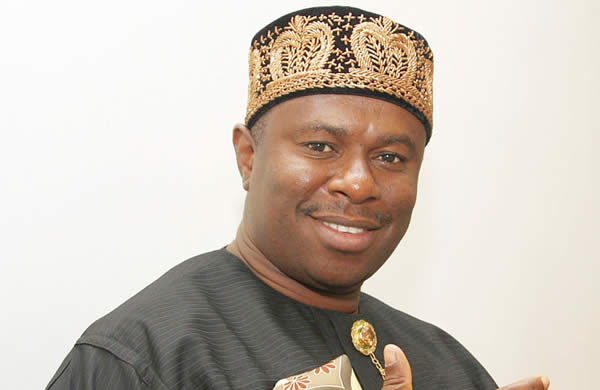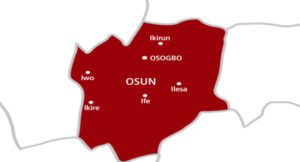


Airfare: Flying beyond reach
By Dakuku Peterside
A military officer who served as Nigeria’s Aviation Minister between 1985 and 1993 during the Babangida years once remarked that air travel was a luxury not meant for the poor. At the time, this comment sparked public outrage for its apparent insensitivity. Yet, more than thirty years later, that statement has proven eerily prophetic, as air travel has become increasingly inaccessible to most Nigerians.
In Nigeria, the significance of air travel is even more profound. With an underdeveloped transportation infrastructure and the risks posed by road and rail travel, air travel has become both convenient and necessary. Despite this importance, soaring ticket prices are reversing decades of progress, making air travel a luxury for the wealthy again. The soaring costs threaten the accessibility of air travel for the average Nigerian, restricting mobility and posing a barrier to economic inclusion.
This problem cannot be delayed for another day. It demands immediate attention and action. This reality is compounded by Nigeria’s unique economic and infrastructural challenges, which have made alternatives to air travel scarce, unsafe, or unreliable. As air travel becomes increasingly out of reach, so do the social and economic benefits it brings, from tourism to job creation. To restore air travel as a widely accessible service, Nigeria must address its infrastructural, regulatory, and economic challenges with targeted reforms and strategic investments. These investments, if made wisely and with a long-term vision, could transform the current state of air travel in Nigeria, making it more affordable and accessible for all.
The limited alternatives to air travel make Nigeria particularly reliant on its aviation sector, especially given the poor state of the country’s road infrastructure. According to a 2023 report by Nigeria’s National Bureau of Statistics, approximately 60 percent of the nation’s roads are classified as “poor,” with many roads riddled with potholes, lacking signage, and without proper maintenance. These conditions are not only inconvenient but also dangerous, as travelling on these roads can lead to vehicle breakdowns, accidents, and exposure to kidnappings and banditry. Between January and July 2024, over 500 cases of kidnapping were reported along Nigerian roads, highlighting the severe security challenges that plague ground transportation. Rail infrastructure, though expanding, remains limited, covering only 3,500 kilometres compared to India’s 65,000 kilometres, a stark illustration of Nigeria’s lag in connecting its vast geography. Water transportation is similarly underutilised, with infrastructure inadequacies and safety concerns making it an unreliable option for most Nigerians. Air travel holds unique importance in this environment as a safe and efficient means of connecting people and goods across the country.
However, the cost of air travel in Nigeria has surged in recent years, making it unaffordable for most Nigerians. For instance, the price of a one-way flight between Lagos and Abuja has risen from around N75,000 (approximately $47) in 2020 to over N170,000 ($100) today, effectively pricing out the average citizen.
Several factors are responsible for these soaring prices, with currency exchange rates playing a significant role. Since most aeroplane spare parts are priced in US dollars and airline operations are generally denominated in US dollars and other stronger currencies, the declining Naira means that Nigerian passengers must pay more. Aviation fuel, which now constitutes 40 percent of airline operating costs, has seen a price increase of over 300% since 2020 due to limited refining capacity and global oil price fluctuations.
Additionally, Nigerian airlines are subject to over 15 separate taxes and regulatory fees, ranging from value-added tax to passenger service charges. These fees significantly increase the cost of doing business for airlines, ultimately passing on the burden to consumers. Inflation, which has remained above 30 percent in recent years, compounds these issues, reducing Nigerian consumers’ purchasing power and further limiting air travel access.
These rising costs have profound implications, particularly for a nation where freedom of movement is vital for economic and social inclusion. The aviation sector is not just a mode of transportation but a key driver of economic growth and social mobility. Affordable air travel enables Nigerians to access jobs, markets, and opportunities far beyond their immediate surroundings. When air travel is reserved for the wealthy, it limits social mobility and restricts the benefits of a connected society. However, if made affordable and accessible, air travel can promote social inclusion by providing access to remote and underserved regions, improving living standards and supporting poverty alleviation. This promising vision underscores the importance of restoring affordability and accessibility to air travel in Nigeria.
Given these challenges, Nigeria must adopt a comprehensive approach to restore affordability and accessibility to air travel. First, substantial investment in alternative public transportation infrastructure is essential. This could be achieved through public-private partnerships. Expanding and maintaining long-distance roads and rail networks would relieve demand pressure on air travel and provide more affordable options for Nigerians. Nigeria could look to countries like India, where extensive railway networks connect rural and urban areas, providing a reliable and low-cost alternative to air travel. Improving water transportation could also offer new solutions, as Nigeria has over 10,000 kilometres of inland waterways that could be leveraged to move goods and people efficiently. Developing these alternatives would improve mobility and foster healthy competition within the transportation sector, potentially driving down air travel costs and opening new economic and social development opportunities.
Another critical issue is the insecurity that has plagued Nigeria’s transportation network, particularly on roads and waterways. Banditry, kidnapping, and piracy make these modes of travel dangerous, prompting more Nigerians to rely on air travel for safety, which increases demand and, consequently, costs. By addressing security concerns in road, rail, and water travel through increased policing, surveillance, and enforcement measures, the government can make these alternatives safer and more viable. This would reduce the demand for air travel, creating a more competitive environment that could lead to more affordable fares.
The government’s role in this process is crucial, and its intervention is necessary to restore affordability and accessibility to air travel in Nigeria.
Regulatory reforms are essential for creating a more efficient and less costly aviation sector in Nigeria. By streamlining administrative and regulatory processes, we can reduce airline operational expenses, leading to lower consumer costs. Countries like South Africa have demonstrated the benefits of streamlined regulations, where simplified frameworks reduce costs without compromising safety standards. In Nigeria, reforming the aviation sector to reduce bureaucratic hurdles could enhance affordability. Tax reform would also provide significant relief. The government could reduce airlines’ operating costs by reducing aviation-related taxes, potentially lowering passenger ticket prices. In the long term, these changes could stimulate the aviation sector, boosting job creation, economic activity, and increased connectivity. This potential for positive change should inspire us to push for these reforms.
Competition within the air travel market is another vital component of affordability. By promoting the entry of new airlines, Nigeria can foster a competitive environment that generally leads to lower prices for consumers. For example, competition between national carrier Kenya Airways and local airlines has created more affordable options for consumers in Kenya. Nigeria’s recent signing of the Cape Town Convention, an international agreement facilitating aircraft financing, presents an opportunity to attract new airline entrants and encourage a more dynamic aviation market that benefits travellers.
Minister of Aviation Festus Keyamo is critical in spearheading efforts to make air travel accessible and affordable for all Nigerians. To reduce air travel costs in Nigeria, the Minister of Aviation can adopt several strategies targeting taxes, fuel costs, competition, infrastructure, and innovation. Reducing aviation taxes, fees, and redundant charges would lower airline operating costs, allowing for more affordable fares. Subsidies on aviation fuel or investment in local fuel production could stabilize and reduce fuel costs, a significant airline expense. Additionally, establishing a foreign exchange window for aviation could mitigate currency volatility.
Encouraging competition is also essential. Lowering entry barriers and incentivizing low-cost carriers would make more affordable options available. Bulk procurement of essential airline parts, collective insurance, and fuel-efficient operations could further decrease airline costs, benefiting consumers. Establishing strong infrastructure alternatives, like high-speed rail, road, and water transport, would relieve demand pressure on the aviation sector, thereby driving down prices.
Regional collaboration, such as Open Skies agreements with neighbouring countries, could increase route options and affordability. Supporting local maintenance and training programs could reduce dependence on foreign expertise, lowering labour expenses. Lastly, encouraging digital solutions and a subsidised frequent flyer program for low-income travellers could make air travel more accessible.
Beyond infrastructure and regulatory reforms, establishing an online complaint mechanism for passengers could improve transparency and accountability within the aviation sector. A similar initiative in India, called AirSewa, allows passengers to submit grievances directly to authorities, ensuring faster response times and promoting a consumer-focused airline industry. Implementing a similar platform in Nigeria would empower passengers to voice their concerns and encourage airlines to improve service quality.
These initiatives, combined with streamlined licensing, local skill development, and efficient operations, would reduce air travel prices and foster excellent connectivity and economic growth in Nigeria. Such a comprehensive approach would make air travel more affordable and accessible for a more significant population.
Nigeria’s aviation sector faces complex challenges, but with targeted reforms and strategic investments, air travel can once again become a service for all rather than a luxury for a select few. Addressing infrastructure, security, taxation, and regulation limitations will require commitment and vision, but the potential benefits are vast. By making air travel accessible, Nigeria can enhance its connectivity, create economic opportunities, and ensure that all citizens benefit from a modern, mobile society. Restoring air travel as a bridge to opportunity will open economic possibilities and solidify Nigeria’s commitment to equal access, inclusion, and national growth. Through these efforts, Nigeria’s aviation industry can take off, empowering millions and supporting the country’s journey toward a more connected, prosperous future.



